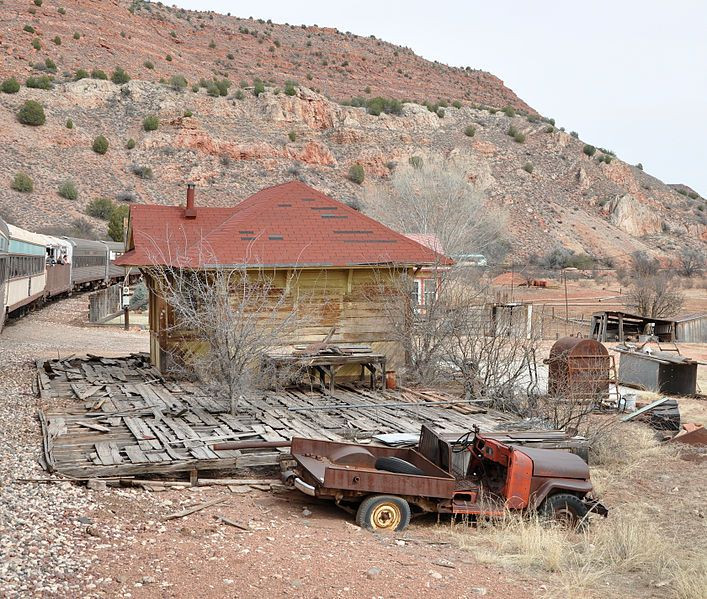David Rhodes, 627-Pound Arizona Bartender, Leaves Phoenix For Ghost Town To Get Away From ‘Poison’ Fast Food

David Rhodes weighed 627 lbs. when he decided to move to a middle-of-nowhere place in Arizona called Cleator, a town with a population of five people. He did it to get away from what he calls “poison food,” or the fast-food options that surrounded him with such density in Phoenix. In his Phoenix neighborhood of Sunnyslope, he could order pizza to his doorstep within minutes, but in Cleator, Rhodes would have to drive half an hour before finding the nearest fast food joint.
“I had to stay away from easy access to what I call poison,” Rhodes told USA Today. And he took some extreme measures.
Before settling in Cleator, Rhodes had taken a used camper shell for his truck and driven north out of Phoenix into the Bradshaw Mountains, where he camped out in the wild with the camper, a couch, some books, and initially only fruits and vegetables to make him lose weight. He then began adding beefsteak tomatoes with salt to his diet, raw carrots, rice and beans, and finally tuna, losing about 100 lbs. in the process.
Rhodes knew he wouldn’t return to Phoenix, so his father bought the liquor license of a tiny bar in Cleator, Ariz., called Cleator Bar. Rhodes became a bartender and a neighborhood fixture, lovingly referred to as “Big Dave” by visitors, locals, and tourists alike. Within 15 years, Rhodes had lost about a total of 300 lbs. since leaving Phoenix. And in his flight from the fast food of Phoenix to the ghost town with a population of five, Rhodes had found his true home.
According to the Centers for Disease Control and Prevention (CDC), more than one-third, or 35.7 percent, of U.S. adults are obese. Conditions associated with obesity include heart disease, stroke, type 2 diabetes, and even types of cancer. The CDC states that these conditions are “some of the leading causes of preventable death.” In 2012, the prevalence of obesity in states was never lower than 20 percent, the lowest being Colorado at 20.5 percent and the highest Louisiana, at 34.7 percent. Thirteen states, including Alabama, Indiana, Kentucky, Louisiana, Ohio, and Tennessee, had a prevalence of obesity at 30 percent or greater. Arizona was at 24.3 percent in 2012.
The U.S. Dept. of Agriculture identified much of downtown Phoenix as a food desert. Food deserts constitute areas in cities or rural parts of the country that have little to no access to fresh, healthy foods because of lacking grocery stores or supermarkets. People living in these areas are often low-income families with no access to transportation. They end up relying on junk food that can be purchased at corner bodegas and the cheap fast food that abounds in Phoenix and most of American cities.
David Rhodes found that Cleator was a desert in the sense of tiny population — but it was one that kept him away from fast food and gave him the chance to meet plenty of people whose lives he has touched. "I've had the Rutgers rugby team at the bar," Rhodes told USA Today about the types of people who’d stop by in Cleator. "I've had a Brazilian soccer team at the bar. I've got letters from Japan of people that have been at the bar and the funny part is they didn't know the address. It would just be 'Big Dave at the Cleator Bar on the road to Crown King, USA.'"
Rhodes knew that while staying away from fast food was no longer his main priority as his weight had stabilized, he wanted to stay in Cleator. “I have to remind myself not to take it for granted, ever,” he told USA Today. “I’m no longer trying to get away. I’m here.” In August 2013, Rhodes passed away from a heart attack in his sleep. The number of people in the town of Cleator swelled to 125 for a brief period of time as people who he’d touched came by in September to pay their respects and celebrate his life.
Published by Medicaldaily.com



























